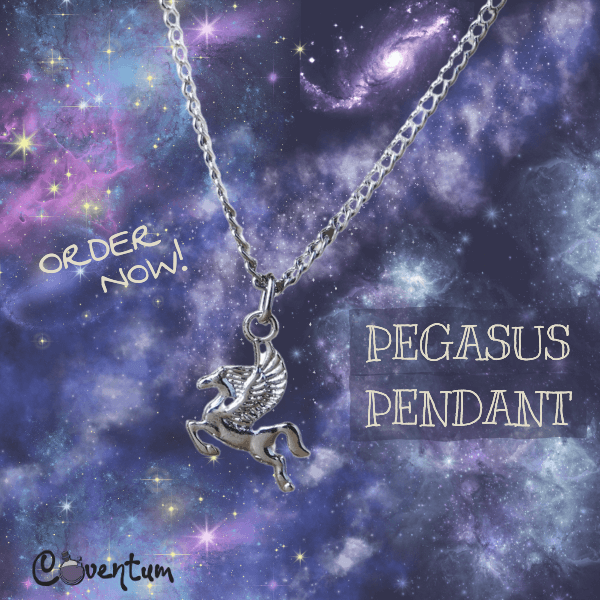They call him Pegasus. A winged horse, magnificent and divine. Born from mythology, Pegasus strides across the realms of imagination, embodying multiple symbols in his galloping journey. He is an immortal creature, ascending from the realm of mere mortal comprehension into a sphere of divine eminence. Here’s everything you need to know about Pegasus mythology and why this winged horse Pegasus remains such an enchanting figure today.
Pegasus Origins: More than a Muse
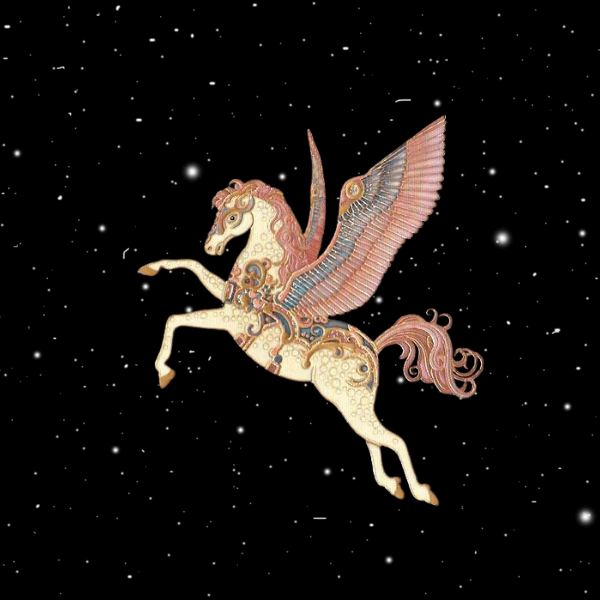
So, what is the myth behind Pegasus? Pegasus’s origin is deeply rooted in Greek mythology. From the blood of Medusa — once a radiant maiden, cursed into monstrosity — sprang forth Pegasus, the winged horse who would one day soar among the gods.
His story begins with Medusa, once a beautiful maiden turned into a monstrous Gorgon by Athena. When Perseus beheaded Medusa using a mirrored shield to avoid her petrifying gaze, Pegasus was born from her spilled blood, alongside his brother Chrysaor.
Pegasus immediately took flight, ascending to the heavens. Some wonder, why is Pegasus immortal? His celestial origin — springing from divine blood — granted him an eternal life beyond mortal reach.
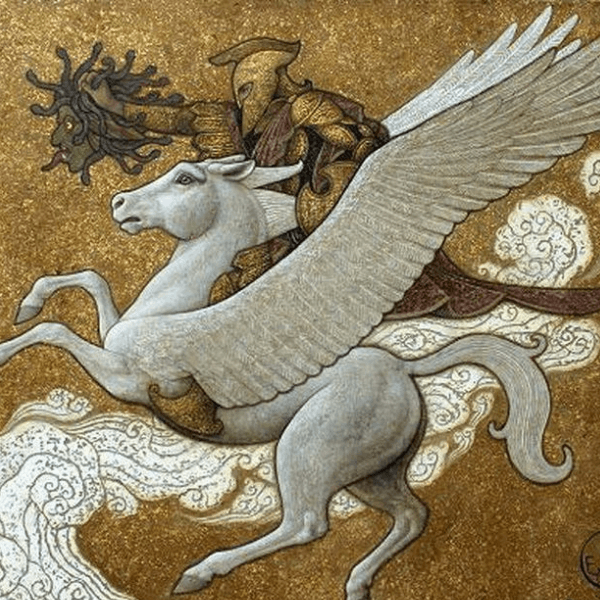
After serving Zeus by carrying his thunderbolts, Pegasus helped Bellerophon slay the Chimera, further cementing his heroic legacy. Ultimately, Zeus transformed Pegasus into a constellation, securing his place among the stars forever.
Contrary to some misunderstandings, Zeus did not kill Pegasus. Instead, Pegasus was honored for his loyalty and service. Who kills Pegasus? No one. His story is one of ascension, not tragedy.
Zeus eventually transformed Pegasus into a constellation, where he would be forever remembered, flying across the night sky. And that’s the intriguing origin of Pegasus, born from blood, a beacon of inspiration, courage, and the boundless freedom of the skies.
Pegasus Constellation and Its Astrological Meaning
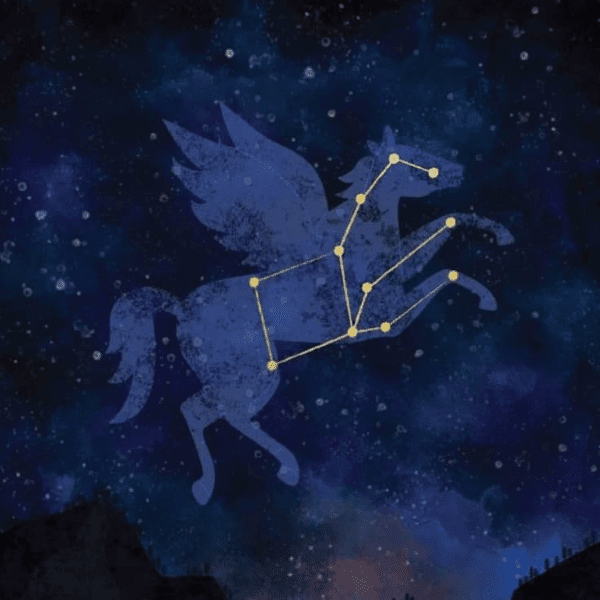
While not a zodiac sign itself, the Pegasus constellation graces the autumn sky with its presence, representing lofty aspirations, poetic imagination, and the courage to overcome earthly boundaries. Every stargazer can trace his stellar silhouette in the autumn sky.
Astrologically, the Pegasus constellation sparks potent symbolism. It presents the energy of the divine horse, embodying creative inspiration and spiritual transcendence. Astrologers connect the constellation’s presence in a person’s natal chart with a drive to overcome earthly boundaries, and to fly beyond limitations. It instills in the individual a touch of Pegasus’ courage, a sprinkle of his poetic inspiration, and a taste for adventure. Even in his starlit form, Pegasus motivates us to reach for the stars, in both a literal and metaphorical sense.
Pegasus Symbolism In Different Cultures
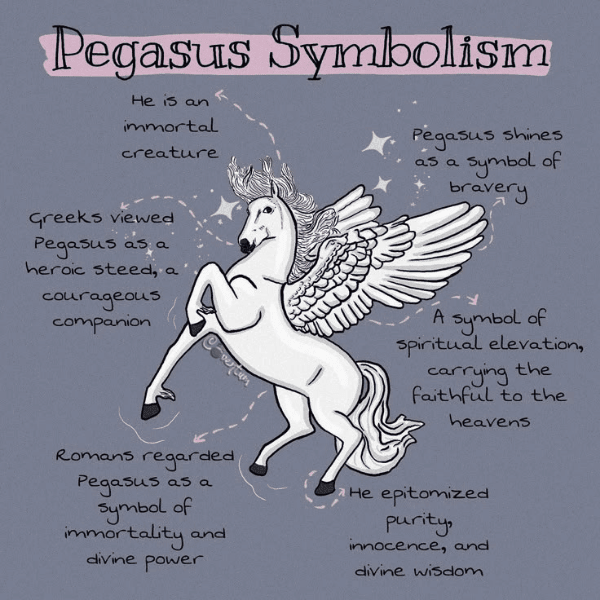
- Greeks viewed Pegasus as a heroic steed, a courageous companion. Bellerophon, a Greek hero, tamed Pegasus with a golden bridle. Here, Pegasus shines as a symbol of bravery and companionship.
Romans regarded Pegasus as a symbol of immortality and divine power. They saw him as a steed of thunder and lightning, connecting him with the king of their gods, Jupiter.
In Christianity, Pegasus took on a more spiritual interpretation. He epitomized purity, innocence, and divine wisdom. A symbol of spiritual elevation, carrying the faithful to the heavens.
The Islamic tradition recognizes Pegasus as Buraq, the steed that carried the prophet Muhammad during his Night Journey. Here, Pegasus stands for divine intervention, miraculous transport, and ascension.
Across civilizations, winged horse Pegasus mythology symbols center around freedom, purity, courage, and divine inspiration.
Pegasus Powers: Why Pegasus Is So Special
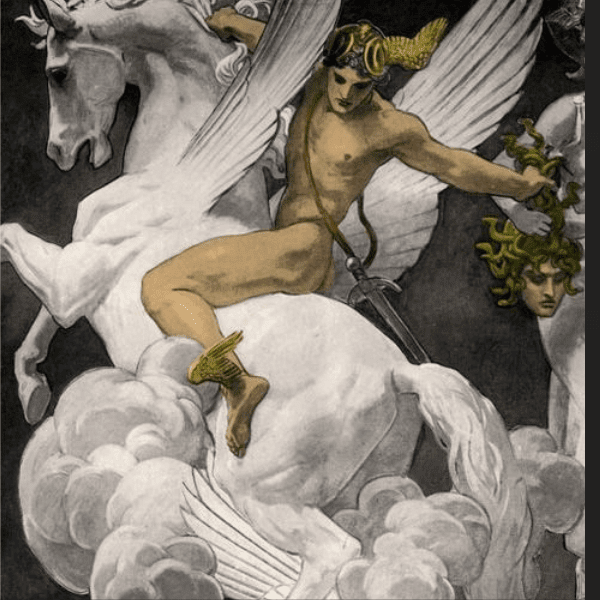
Pegasus possesses the power of flight, soaring between realms — from the mortal world to Olympus itself. He also represents the power of carrying divine messages, embodying both spiritual and creative energy.
But why is Pegasus so special? This special horse is a rare fusion of strength and purity. He embodies the possibility of transcending earthly limitations through courage and imagination. With his winged might, Pegasus reminds us that no dream is too distant.
The Pegasus Legacy: An Enduring Symbol
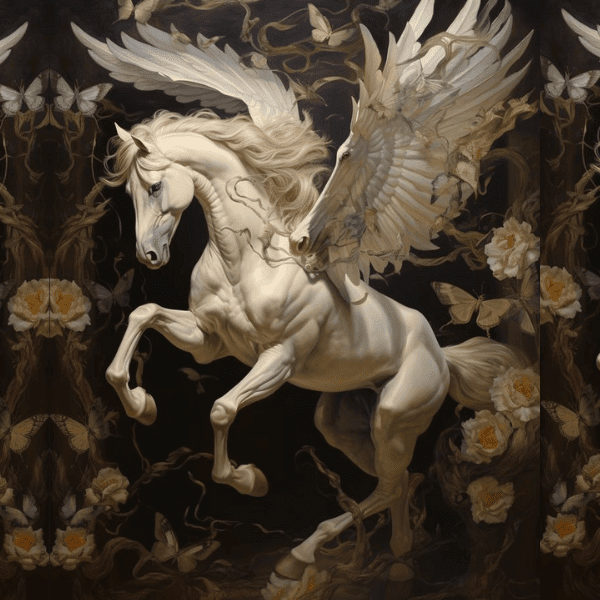
From the head of a Gorgon to the starlit heavens, Pegasus’s legacy endures. Facts about Pegasus show that he is not merely a mythical horse but a timeless symbol of creativity, freedom, and divine power. Whether seen as a Pegasus horse with wings soaring in mythology or traced across the night sky, his spirit continues to inspire dreamers and adventurers alike.
Carry Pegasus’s Spirit with You
Harness the timeless magic of this winged legend with our handcrafted Pegasus Necklace Charm — a piece of Pegasus jewelry designed to symbolize creativity, courage, and boundless freedom. Whether you seek a Pegasus talisman for daily inspiration or a Pegasus pendant to remind you of your inner strength, our Pegasus necklace for women is your companion for all journeys.
Discover the magic of Pegasus — and wear the myth that flies beyond the ordinary.

